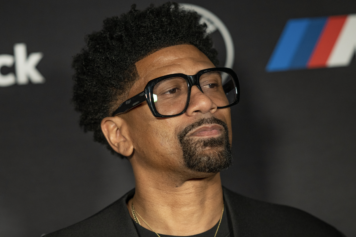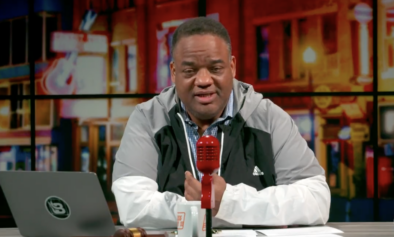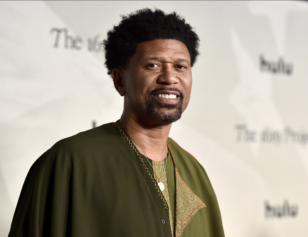The NCAA’s Board of Governors ruled that it supports a proposal that allows college athletes to sign endorsement contracts and receive payments for other work provided the schools they attend are not involved in any of the payments. Athletes can appear in advertisements, but they can’t use any of the school’s logo or branding in the advertising.
The plan includes players receiving compensation from social media and personal appearances, as well as through businesses they started.
“While student-athletes would be permitted to identify themselves by sport and school, the use of conference and school logos, trademarks or other involvement would not be allowed,” the NCAA stated.
Vindication For Chris Webber, Jalen Rose & Fab Five
When the news was announced, Jalen Rose, a member of Michigan’s Fab Five, declared on ESPN that “the financial dominance and dominance of the NCAA over its athletes is steady crumbling”
Michigan had their 92-93 Final Four appearances vacated by the NCAA due to payments — reportedly as much as $280,000 — made by booster Ed Martin to Webber. That doesn’t change the fact that they captivated basketball and changed the culture so drastically you couldn’t even quantify it in numbers. The scandal, however, was a black eye on their legacies.
“Now 30 years later, finally NCAA players will be allowed to be paid for their likeness,” Rose said on ESPN on Wednesday.
The NCAA Charade Is Over: Put The Banners Back Up
Then Rose proceeded to share a story that made it clearer than ever that Michigan should have their banners reinstated. We can no longer hold underserved, impoverished Black kids responsible for the unscrupulous and exploitative culture embedded in the historical core of big-time NCAA hoops.
After graduating from high school in 1991, Rose says that before he ever attended a college practice, he and a couple of teammates went to an appearance and got paid for the appearance.
“I actually thought I was going to get cash,” Rose said. but the gentleman gave me a check. I didn’t even have a checking account. It was kind of a big deal. We ended up being investigated… about doing a paid appearance.”
It was an omen of things to come as the financially restrictive culture of NCAA basketball forced student-athletes who were generating millions for the school to accept money from nefarious characters and line-toting boosters to get by and feed their families.
This new ruling was an indictment on the way the NCAA has been doing business for years with its student-athletes. Raking in millions off of their likeness as many athletes sacrifice their bodies with no guarantee of a pro future, struggling just to make ends meet.
Based on this ruling by the committee, the NCAA needs to do the right thing and lift sanctions off any basketball program that ever violated any rule that had to do with players getting money, Champ Guru told The Shadow League. They need to raise them banners and retire the Fab Five jerseys immediately
Next Step Is Pay-For-Play
Rose feels like the NCAA needs to just go one step further, do the right thing and start paying the players for carrying the brunt of the financial burden for their universities.
The Board Of Governors, led by Big East commissioner Val Ackerman, isn’t ready to deal with that complicated issue yet.
“While the formation of this group is an important step to confirming what we believe as an association, the group’s work will not result in paying students as employees,” Ohio State AD Gene Smith said, per ESPN. “That structure is contrary to the NCAA’s educational mission and will not be a part of this discussion.”
In the meantime, this is a temporary fix that loudly and emphatically condemns the way the NCAA has been treating its athletes.
The fact that athletes can finally leverage all of their hard work and success and gain financially is long overdue and definitely shows a chink in the NCAA’s armor. People like Rose, who have been victims of the NCAA’s hypocrisies of the past, believe that for the governing body to finally relent and allow student-athletes to truly capitalize on their talents in free market signals an end to business as usual for the NCAA monopoly.



